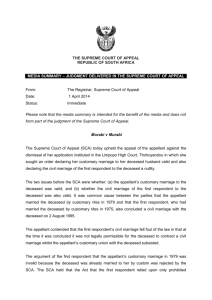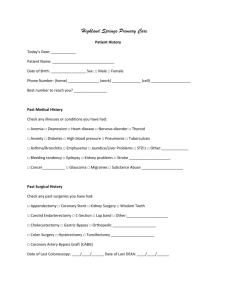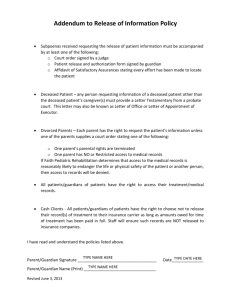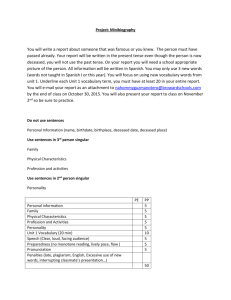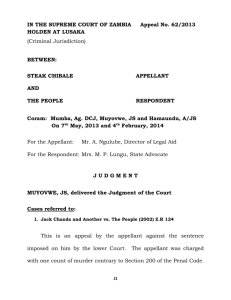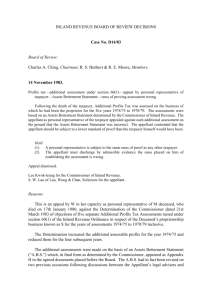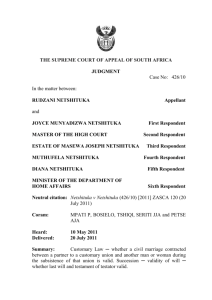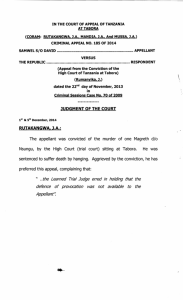RTF format
advertisement
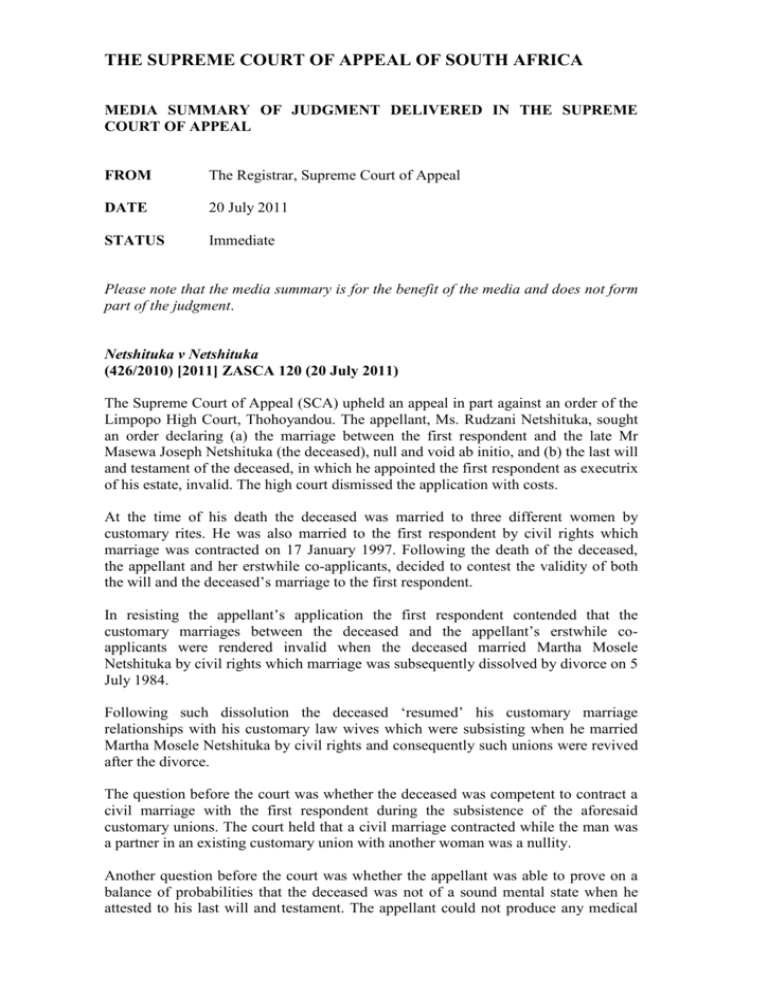
THE SUPREME COURT OF APPEAL OF SOUTH AFRICA MEDIA SUMMARY OF JUDGMENT DELIVERED IN THE SUPREME COURT OF APPEAL FROM The Registrar, Supreme Court of Appeal DATE 20 July 2011 STATUS Immediate Please note that the media summary is for the benefit of the media and does not form part of the judgment. Netshituka v Netshituka (426/2010) [2011] ZASCA 120 (20 July 2011) The Supreme Court of Appeal (SCA) upheld an appeal in part against an order of the Limpopo High Court, Thohoyandou. The appellant, Ms. Rudzani Netshituka, sought an order declaring (a) the marriage between the first respondent and the late Mr Masewa Joseph Netshituka (the deceased), null and void ab initio, and (b) the last will and testament of the deceased, in which he appointed the first respondent as executrix of his estate, invalid. The high court dismissed the application with costs. At the time of his death the deceased was married to three different women by customary rites. He was also married to the first respondent by civil rights which marriage was contracted on 17 January 1997. Following the death of the deceased, the appellant and her erstwhile co-applicants, decided to contest the validity of both the will and the deceased’s marriage to the first respondent. In resisting the appellant’s application the first respondent contended that the customary marriages between the deceased and the appellant’s erstwhile coapplicants were rendered invalid when the deceased married Martha Mosele Netshituka by civil rights which marriage was subsequently dissolved by divorce on 5 July 1984. Following such dissolution the deceased ‘resumed’ his customary marriage relationships with his customary law wives which were subsisting when he married Martha Mosele Netshituka by civil rights and consequently such unions were revived after the divorce. The question before the court was whether the deceased was competent to contract a civil marriage with the first respondent during the subsistence of the aforesaid customary unions. The court held that a civil marriage contracted while the man was a partner in an existing customary union with another woman was a nullity. Another question before the court was whether the appellant was able to prove on a balance of probabilities that the deceased was not of a sound mental state when he attested to his last will and testament. The appellant could not produce any medical 2 report that supported these allegations. On the contrary, a medical report placed before the court stated that ‘despite being chronically physically ill’ the deceased was ‘mentally normal and fully conscious, aware of his surroundings’ and ‘oriented in time, place and person’. Therefore, the court held that there is no evidence that the deceased was mentally incapacitated when he attested to his last will and testament. For the reasons stated above the SCA upheld the appeal in part declaring the marriage between the first respondent and the deceased null and void.
